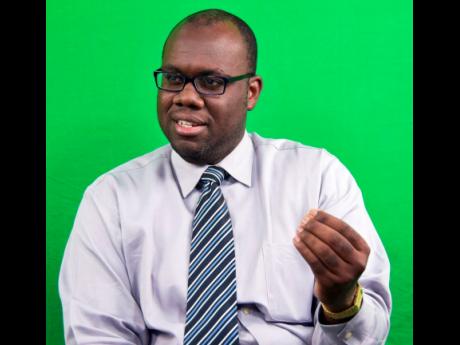Overtime cuts bleed healthcare workers
Healthcare workers at the island’s smaller, less equipped hospitals seem to be hit hardest by a reduction of ‘sessions’ and overtime due to the restructuring of patient care caused by COVID-19.
Across the island, hospitals have been sending home less critical patients and suspending some services as part efforts to free up space in the public health system and reduce the risk of exposure to some patients.
Some have also seen fewer patients coming in as many persons shy away from visiting healthcare facilities out of fear of contracting the deadly virus, which has claimed more than 340,000 lives across the globe.
This has reduced the need for a number of doctors, nurses and porters working on overtime shifts, and hospital managers have started to snip at the much-needed salary supplement, leaving some furious.
Healthcare workers at the Type B Savanna-la-Mar Public General Hospital in Westmoreland were among the latest to feel the financial distress, after a letter from the hospital’s administration last Thursday advised that overtime work would be cut.
‘Sessions’, a term used by doctors and nurses, are four- or eight-hour work stints outside of usual work. The pay rate is usually higher than for normal hours.
In the letter to divisional heads, a copy of which was obtained by The Sunday Gleaner, it was advised that the hospital had undergone a budget cut and thus a reduction in sessions was necessary.
“The much-anticipated budget for financial year 2020/2021 has been received. The allocation was less than proposed and even more alarming, less than we received last year. In light of this, it has become necessary for major financial adjustments to be made,” read the letter. “As a consequence, overtime and sessions must be reduced as there is no fund allocated for this expenditure.”
It left some healthcare workers at the hospital livid.
“So what they have proposed now is to scrap the two doctors who are supposed to come in at 12 (midnight), and they are also cutting down on one doctor in the evening shift. But that cannot work, the staff is already pressured,” bemoaned one medic who requested anonymity.
“Sav functions like a Type A hospital. It is a trauma centre – bike accidents, gunshots and those things. We have the whole of that. We function closer to a Type A than B,” explained the doctor, referencing Jamaica’s two larger, Type A hospitals – the Kingston Public and Cornwall Regional hospitals.
“Our patient load in Sav is far greater. We cannot afford any cuts in sessions because that would mean less staff and more burdens on the rest of workers there. It also means longer waiting times for patients,” the doctor argued.
Yesterday, Carmen Johnson, president of the Nurses Association of Jamaica, and Dr Elon Thompson, president of the Jamaica Medical Doctors Association, said they were both aware of disquiet over the overtime cuts at some hospitals.
Liveable wage needed
Johnson explained, however, that sessions and overtime are based on needs, and some smaller hospitals, like Savanna-la-Mar General and Percy Junor Hospital in Mandeville, may have less need for nurses on overtime than a larger one such as the Kingston Public Hospital (KPH).
“COVID-19 has severely impacted the economy and health. It has transformed the healthcare sector in Jamaica and the world. We just have to look at our monthly budget to see how we can function until we get a proper salary or the system returns to normal,” she said.
“It has highlighted, however, the need for our policymakers and employees to recognise that you must provide us with a liveable wage. When you don’t, and we have these kinds of a situation [where] it means that we can’t manage because we depend on the additional income,” she stressed.
The sentiment was echoed by Thompson, who explained that some doctors rely heavily on overtime to supplement their salaries, but the first item of cut is going to be sessions as these are voluntary.
“It is the same thing we have been telling the Government for forever,” he told The Sunday Gleaner. “It is difficult to have a car loan, your house mortgage, rent, … and your basic salary or your rostered duty just can’t cover it.”
Thompson noted that session cuts could mean reduced patient service or restructuring of the unit.
“A part of it is that there has been no implementation of a strategic plan for the health sector. If we had one, it would make things a little more easier when COVID-19 comes,” he said.


